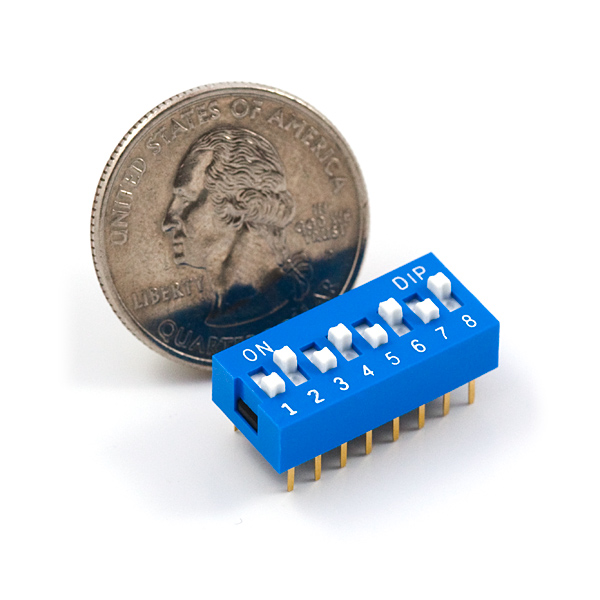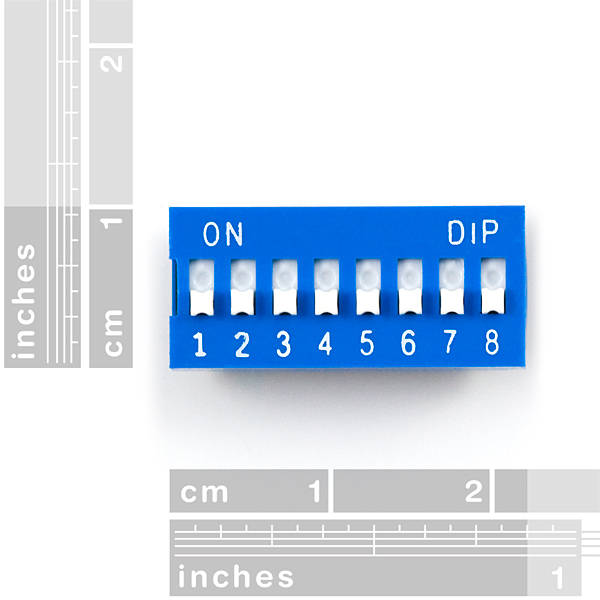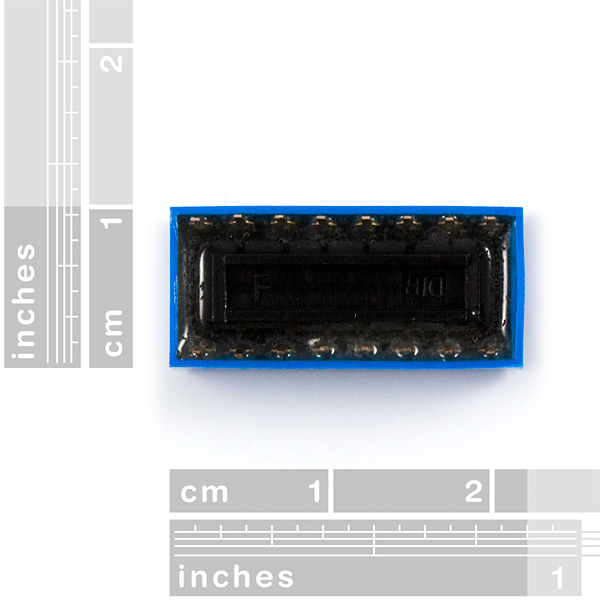DIP switch with 8 individual switch positions. The pins have .1" spacing - fits great into a breadboard! Works great as general control switches.
DIP Switch - 8 Position Product Help and Resources
Button and Switch Basics
May 7, 2013
A tutorial on electronics' most overlooked and underappreciated component: the switch! Here we explain the difference between momentary and maintained switches and what all those acronyms (NO, NC, SPDT, SPST, ...) stand for.
Core Skill: Soldering
This skill defines how difficult the soldering is on a particular product. It might be a couple simple solder joints, or require special reflow tools.
Skill Level: Noob - Some basic soldering is required, but it is limited to a just a few pins, basic through-hole soldering, and couple (if any) polarized components. A basic soldering iron is all you should need.
See all skill levels
Core Skill: Electrical Prototyping
If it requires power, you need to know how much, what all the pins do, and how to hook it up. You may need to reference datasheets, schematics, and know the ins and outs of electronics.
Skill Level: Noob - You don't need to reference a datasheet, but you will need to know basic power requirements.
See all skill levels
Comments
Looking for answers to technical questions?
We welcome your comments and suggestions below. However, if you are looking for solutions to technical questions please see our Technical Assistance page.
Customer Reviews
2.5 out of 5
Based on 4 ratings:
Handy little buggers.
Many products manufactured have these on them, and for good reason. changing parameters is one great usage I have, such as Daylight Savings time, unit conversion selector. Or changing bits in a byte to select one of 32 options.
Useful but awkward on a breadboard
This is a really neat switch to have and its useful for settings that don't need to be changed too often but it has a hard time staying securely on a breadboard due to the short leads.
Handy, but won't stay on a breadboard
I got this for messing around with basic logic circuits on a breadboard, problem is it won't stay plugged into a breadboard for more than a second or two
Sorry to hear about the trouble with the dip switches. Typically they're pretty reliable on breadboards, but if you are going to be changing the switches, it's advised that you use a small screwdriver to flip the switches or to stabilize it with a finger when flipping the switches to not put additional lateral force on the switches. If you want to setup a return, or discuss possible work arounds for this issue, please contact us at Techsupport@sparkfun.com
Doesn't stay in breadboard
The legs on this aren't long enough to catch in the breadboard and it pops out. Would love to find one that stays put.
You might try a different breadboard with these. Some breadboards are more forgiving of short leads than others.




I'm going to use one of these as sort of a binary keyboard by hooking it up to an Arduino and using a tact. switch as a Serial Write button (or use a timer for a speed challenge)!
What are the voltage and current ratings on these DIP Switches?
While that information is probably available somewhere - I'd say look it up for a few other DIP switches, it's highly likely to be similar - I think that if you've got voltage/current rating concerns for them, you may planning on using them for purposes other than what they're intended for; they're really only intended as rarely-set signal control switches, e.g. putting a logic 1/0 on a microcontroller pin/bjt/fet, and not as a bank of active switches for a (relatively) large load.
8 individual switche positions, wow!
Does anyone know if this will fit in an IC socket?
Yep, it will. The datasheet says it is 7.62 mm wide, which equates to 300 mill. It will perfectly straddle your breadboard centerline and should fit right a 16-pin DIP socket.